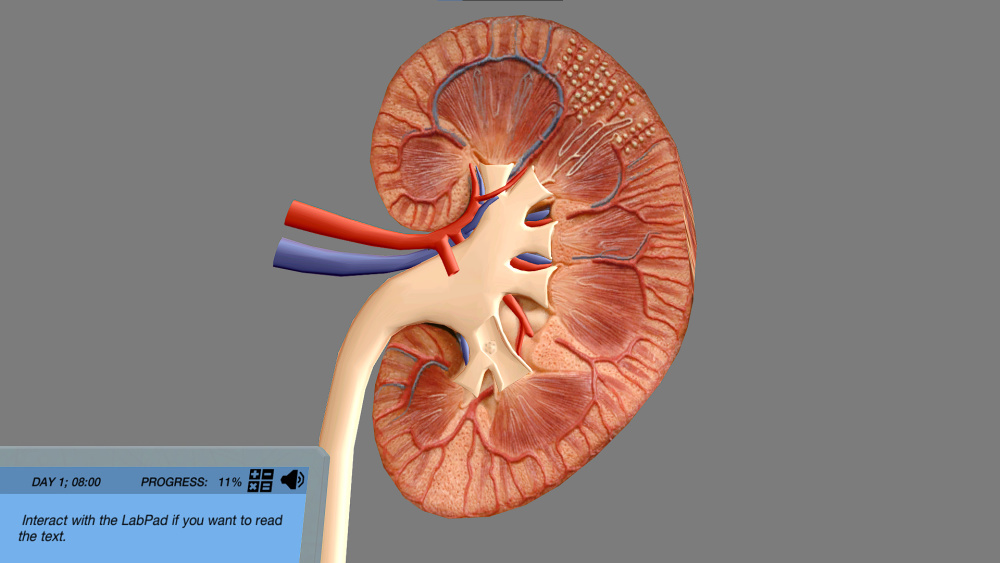
Author
Table of Contents
Name of the heading
Chronic kidney disease (CKD) presents a significant health burden globally, affecting millions of individuals and necessitating effective treatment strategies. One of the prominent complications of CKD is anemia, which affects a substantial portion of patients. Globally, an estimated 10% of the population suffers from CKD, and within this population, anemia prevalence ranges from 30-50%. CKD poses significant challenges in its treatment, with the management of anemia being a crucial aspect of patient care.
To develop effective interventions, it is essential to delve into the intricate world of ‘protein synthesis’, distinguishing between prokaryotic and eukaryotic cells. Through the ‘analysis of protein sequences’ and advanced ‘techniques like mass spectrometry’, researchers can gain valuable insights into the ‘optimal cellular mechanisms for synthesizing erythropoietin (EPO)’- a pivotal protein involved in ‘red blood cell (RBC) production’. Only when students are clear about these interrelationships, they can be in a position to understand the therapeutic strategies and treatment plans to combat this health issue.
For educators dealing with topics, we have compiled 5 creative ways to simplify all of this complex science.
1. Use Interactive Models and Simulations
Educators can effectively teach young learners about the treatment for CKD and related topics like protein synthesis in prokaryotic versus eukaryotic cells, analysis of protein sequences, techniques like mass spectrometry (MS), and the relation between erythropoietin (EPO) and red blood cell (RBC) production by employing interactive models and simulations.
The use of Virtual Labs is one efficient way to do this. In these labs, students can engage in hands-on activities like preparing erythropoietin samples and analyzing them using a virtual mass spectrometer without having to worry about the high costs of infrastructure required for running the same experiment in a real lab.

2. Learning with Games and Activities
Studies have shown that game-based learning brings out better learning outcomes in students. By incorporating online games into the course curriculum, educators can significantly improve students' learning motivation and power to grasp more information.
Based on the same philosophy, Labster offers a digital game-based lab experience where students can prepare recombinant human erythropoietin (rhEPO) that is transfected into E. coli and CHO cells. A major benefit of using this game is that the samples are prepared within seconds rather than hours taken for incubators in real labs. Not only does this save time but also offers benefits in learning and teaching of a topic as heavy on data as CKD treatment. Some benefits that you would be seeing are:
- A better understanding of protein synthesis in Prokaryotes (E. coli) versus Eukaryotes (CHO cells)
- Acquisition of knowledge about the analysis of protein sequences
- A better comprehension of how EPO and RBC production are connected

Discover Labster's CKD Treatment virtual lab today!
3. Infusing Technology into Study Plans
Educators can use the power of technology to revolutionize their lesson plans on CKD treatment. Several strategies can be implemented with the current availability of diverse options for technological interventions.
- One effective approach is utilizing interactive e-learning platforms that offer multimedia content, like videos, GIFs, placards, etc to engage students and enhance their understanding of anemia and its relation to CKD.
- Online discussion forums and webinars can enable students to interact and exchange ideas with experts in the field and get enlightened about the newer versions of techniques like mass spectrometry.
4. Inspiring Learners by Connecting to Career Prospects
Educators can rely on this timeless strategy of quoting career prospects to motivate students to learn about this topic. As you highlight the real-world applications and potential career paths in clinical research and laboratory roles, students will feel empowered with your classroom lessons. They can see through a direct way to contribute to advancements in the understanding and treatment of chronic kidney disease.
You can also use one or more of the underlisted ways:
- Showing scope in the field of nephrology
- Exploration of biomedical research careers (as in Labster’s CKD Treatment Virtual Lab)
- Virtual job shadowing
- Engaging with patient stories
5. Connecting the Topic to Real-World Applications
When teaching young learners about CKD treatment plans, it is essential to connect the concepts to real-world applications. For instance, discussing how advancements in understanding protein synthesis and EPO production have led to the development of medications like erythropoietin-stimulating agents (ESAs) that can effectively manage anemia in patients with chronic kidney disease. Exploring the impact of these treatments on patients' quality of life and long-term health outcomes can help students understand the practical implications of their knowledge and inspire them to contribute to the field through research, healthcare careers, or innovative solutions.
Final thoughts
While teaching students about Chronic Kidney Disease and its treatment, employing a diversity of strategies can enhance the learning experience for students. Connecting the subject matter to real-world applications and inspiring them could be monumental. By combining the above-listed strategies, educators can create a comprehensive and engaging learning environment for students to explore the complexities of CKD treatment!!!

References
- Jong, B. S., Lai, C. H., Hsia, Y. T., Lin, T. W., & Lu, C. Y. (2012). Using game-based cooperative learning to improve learning motivation: A study of online game use in an operating systems course. IEEE Transactions on Education, 56(2), 183-190.
FAQs
Heading 1
Heading 2
Heading 3
Heading 4
Heading 5
Heading 6
Lorem ipsum dolor sit amet, consectetur adipiscing elit, sed do eiusmod tempor incididunt ut labore et dolore magna aliqua. Ut enim ad minim veniam, quis nostrud exercitation ullamco laboris nisi ut aliquip ex ea commodo consequat. Duis aute irure dolor in reprehenderit in voluptate velit esse cillum dolore eu fugiat nulla pariatur.
Block quote
Ordered list
- Item 1
- Item 2
- Item 3
Unordered list
- Item A
- Item B
- Item C
Bold text
Emphasis
Superscript
Subscript





